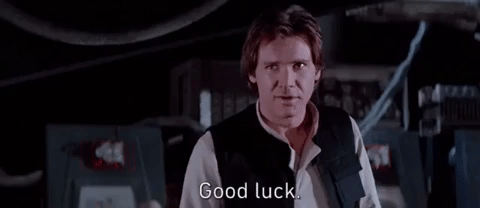
Thursday, October 10
What Are We Doing Today?
-
Today's Goals
-
Compinar!
-
Midterm Reflective Overview Peer Review
-
Homework

Today's Goals
Learning Outcomes
-
TW 1: Integrate different viewpoints as a member of a team.
-
PR 1: Evaluate choices and actions, and relate consequences to decision making.
Habits of Mind
-
Metacognition is fostered when writers are encouraged to connect choices they have made in texts to audiences and purposes for which texts are intended.
-
Responsibility is fostered when writers are encouraged to act on the understanding that learning is shared among the writer and others—students, instructors, and the institution, as well as those engaged in the questions and/or fields in which the writer is interested.
Key Terms
-
Genre and genre conventions
-
Composing Processes: planning, researching, drafting, sharing and responding, revising, editing, publishing, reflecting
Compinar Discussion--NWWK TC 5.2
Originally, I had meant for us to read TC 5.2 and discuss in class and do the peer review but we compinared today! So we are going to make some moves for the Midterm Portfolio is a unique way!
Group A: NWWK TC 5.2
-
"...notes in this collection, writers engage in cognition when they reflect on "what they are doing in a particular moment" but display metacognition when they consider "why they made the rhetorical choices they did."' (75)
-
What is the difference between cognition & metacognition?
-
Connect to
-
NWWK Threshold Concept 4.2 "Failure Can Be an Important"
-
-
Group B: NWWK TC 5.2
-
"Metacognition is not cognition. Performance, however thoughtful, is not they same as awareness of how that performance came to be." (75)
-
Why is metacognition significant?
-
Connect to
-
NWWK Threshold Concept 4.2 "Failure Can Be an Important"
-
-
Group C: NWWK TC 5.2
-
"Cognition refers to the acquisition and application of knowledge through complex mental processes." (76)
-
How does metacognition allow us to transfer?
-
Connect to
-
NWWK Threshold Concept 4.2 "Failure Can Be an Important"
-
-
Group D: NWWK TC 5.2
-
"In those cases, metacognition allows writers the assess the skill and knowledge sets apply in these novel situations and which do not." (76)
-
What is it about metacognition that helps us think about our skills?
-
Connect to
-
NWWK Threshold Concept 4.2 "Failure Can Be an Important"
-
-
Group E: NWWK TC 5.2
-
"In the end, while cognition remains critical to effective writing, it is metacognition that endows writers with a certain control over their work, regardless of the situation in which they operate." (76)
-
How does metacognition help us transfer those writing skills??
-
Connect to
-
NWWK Threshold Concept 4.2 "Failure Can Be an Important"
-
-
If time permits: what are some ways in which we can reflect on why we made the choices we did for the assignments we've worked on?!
Think of how this connects to our previous reading discussions...
Midterm Portfolio-Reflective Overview Peer Review
-
Reflective Overview draft due by Friday (10.11)
-
submit a link to this in the Blackboard Discussion forum: Midterm RO draft
-
-
Reflective Overview peer review due by class on (10.15)
I will assign you a person to peer review! Take a look at their RO draft. When reading their work, consider the following questions:
-
Where does the student answer the checklist questions?
-
Where does the student explain the Learning Outcome?
-
Where does the student offer examples to support their explanation? Does the student demonstrate how they have worked towards, struggled with, or accomplished the LO?
-
Are these examples appropriate for the audience?
-
Where does the student offer textual evidence for their interpretation of the texts LO and reading concepts (NWWK and Framework)?
-
Where does the student explain how their textual evidence supports their interpretation? Does the writer explain the process of evidence and why or how it connects to the LO?
-
What can the student write in order to fulfill the above requirements? Does the student use the RO template?
After you read their work, with these questions in mind, offer the student 3 pieces of feedback by replying to their thread in Blackboard. In the Subject line, type "RO PR." Your feedback should be specific and actionable.
Moreover, your feedback should include 3 "because clauses," meaning you should always offer a clear reason for your suggestions/feedback. Feedback should focus on "higher-order" issues such as structure, developing examples, making connections to prior knowledge, meeting the requirements of a standard response as is broken down by the 7 questions above.
Your feedback should help the author expand and explain their attempts to make meaning from the texts. Avoid commenting on grammar and spelling, and avoid non-actionable comments like "make this clearer," or "This is good/bad," etc.
Partner Up!!!
-
Logan Bardin-Joseph Gonzales
-
Gabriel Bickford- Amerika Sanchez
-
Cade Thompson-Alexis Erickson
-
Mackenzie Finch-Jie Zhang
-
Katelynne Gaitan-Joshua McMullen
-
Michael Garcia-Annalisa Hummell
-
Rebekah Garcia-Gabriel Tolentino
-
Brandi Webb-Clayton Thompson
-
Christin Miller-Hyacinth Udeani
Homework
A)Looking Ahead:
-
Reading Response #6 is due this Sunday (10.13) by midnight.
-
Reflective Overview draft due by Friday (10.11)
-
submit a link to this in the Blackboard Discussion forum: Midterm RO draft
-
-
Reflective Overview peer review due by class on (10.15)
C) Need help? Come see me!
I have both Writing Center and Office Hour times we can meet. Let me know if you want to come by or how to make an appointment for the Writing Center!
